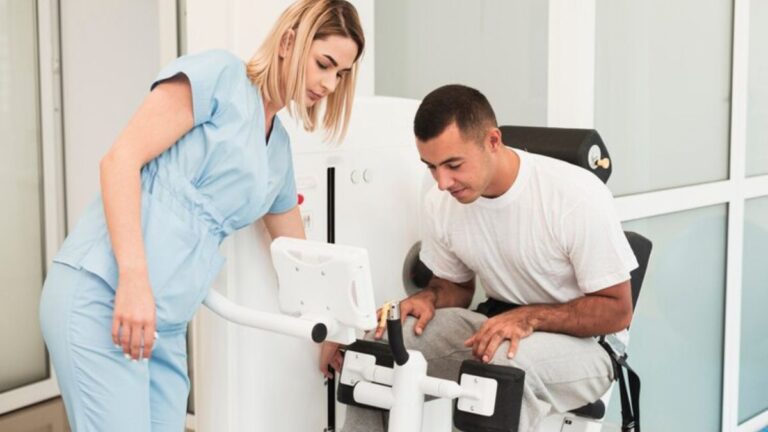Choosing to enter an inpatient rehab center is a significant step towards recovery, and it’s natural to have questions and concerns about what to expect during your stay. Understanding the process can alleviate some anxiety and help you prepare mentally and emotionally for the journey ahead. Here, we’ll break down the typical components of an inpatient rehab stay, from the initial intake process to the various therapies and daily routines you’ll encounter.

The Intake Process
Upon arrival at the inpatient rehab, you’ll go through an intake process. This is a comprehensive assessment conducted by medical professionals and counselors to evaluate your physical and mental health, substance use history, and any co-occurring disorders. Expect to answer detailed questions about your substance use, medical history, and personal background. This information is crucial for creating a tailored treatment plan that addresses your specific needs.
Medical Detoxification
For many, the first step in rehab is medical detoxification, or detox. Detox is designed to manage and minimize the physical symptoms of withdrawal from drugs or alcohol. This phase can last from a few days to a couple of weeks, depending on the severity of the addiction and the substances involved. During detox, you’ll be under constant medical supervision to ensure your safety and comfort. Medications may be administered to alleviate withdrawal symptoms and prevent complications.
Creating a Personalized Treatment Plan
After detox, the focus shifts to developing a personalized treatment plan. This plan is crafted based on the information gathered during the intake process and aims to address your unique needs. It typically includes a combination of therapies and activities designed to promote healing and recovery. The treatment plan is not static; it evolves as you progress through the program and as your needs change.
Daily Schedule and Routine
Structure and routine are key components of inpatient rehab. A typical day is highly structured, with a full schedule of activities designed to foster recovery. This often includes:
- Morning Check-ins: Each day usually begins with a group check-in or a brief meeting with your counselor to set goals and intentions for the day.
- Therapy Sessions: These are the core of the rehab experience. You’ll participate in individual therapy, group therapy, and possibly family therapy. Cognitive-behavioral therapy (CBT), dialectical behavior therapy (DBT), and other evidence-based practices are commonly used.
- Educational Workshops: These sessions provide information about addiction, coping strategies, and relapse prevention.
- Exercise and Recreation: Physical activity is encouraged as it helps in healing the body and mind. Activities might include yoga, gym workouts, swimming, or other recreational sports.
- Meals and Nutrition: Balanced, nutritious meals are provided to help restore physical health. Some centers might offer nutrition education and cooking classes.
- Evening Activities: Evenings may include group meetings, 12-step program sessions, or leisure activities such as movie nights or art therapy.
Therapeutic Modalities
A variety of therapeutic modalities are employed in inpatient rehab to address different aspects of addiction and recovery:
- Individual Therapy: One-on-one sessions with a therapist help you explore the root causes of your addiction, develop coping strategies, and set personal goals.
- Group Therapy: Sharing experiences and insights with peers in a group setting can be incredibly powerful. It provides a sense of community and support.
- Family Therapy: Addiction often affects the entire family. Family therapy sessions can help repair relationships, improve communication, and educate family members about addiction.
- Holistic Therapies: Many rehab centers like the Hollywood Hills rehab incorporate holistic therapies such as meditation, acupuncture, massage, and art therapy to support overall well-being.
Building Life Skills
Recovery isn’t just about quitting drugs or alcohol; it’s also about building a fulfilling, substance-free life. Inpatient often includes life skills training to help you succeed post-treatment. This might involve:
- Stress Management: Learning techniques to manage stress without turning to substances.
- Employment Support: Assisting with job skills, resume building, and interview preparation.
- Financial Planning: Teaching budgeting and financial management skills.
- Relapse Prevention: Developing strategies to recognize and manage triggers, cravings, and high-risk situations.
Support and Aftercare Planning
As your stay in inpatient rehab nears its end, the focus shifts to preparing you for the transition back to everyday life. This involves creating a comprehensive aftercare plan to support your continued recovery. An aftercare plan might include:
- Outpatient Therapy: Continuing individual or group therapy on a less intensive basis.
- Sober Living Arrangements: Transitional living environments that provide a supportive, substance-free setting.
- Support Groups: Connecting with local 12-step or other support groups.
- Follow-up Appointments: Regular check-ins with your counselor or therapist to monitor progress and address any challenges.
Emotional and Psychological Support
Rehab is not just about physical recovery; it’s about healing the mind and emotions as well. You’ll have access to a range of emotional and psychological support services throughout your stay. This may include:
- Counseling: Regular sessions with a counselor to address emotional issues, trauma, and mental health conditions.
- Peer Support: Building relationships with others in recovery can provide mutual support and encouragement.
- Mindfulness Practices: Techniques like meditation and mindfulness can help you stay grounded and present.
Conclusion
Entering a rehab center is a courageous step towards reclaiming your life from addiction. While the journey can be challenging, understanding what to expect can make the process more manageable. From the initial intake and detox to the structured daily routines and diverse therapies, each component of inpatient rehab is designed to support your recovery. Remember, the goal is not only to achieve sobriety but to build a healthier, more fulfilling life. With dedication and the comprehensive support of a rehab center, you can navigate this path to recovery and emerge stronger on the other side.
